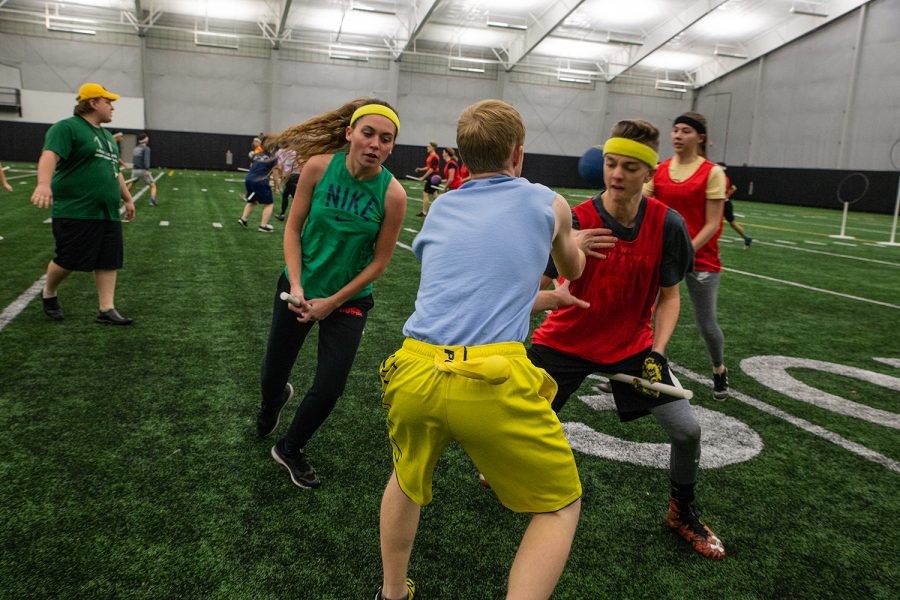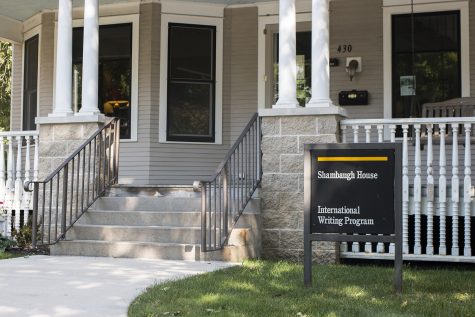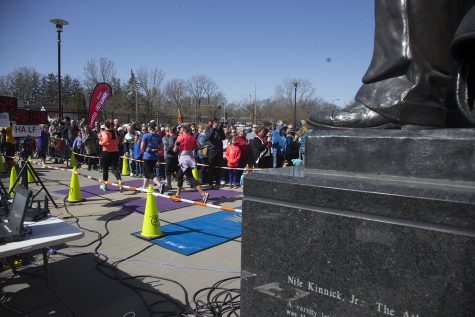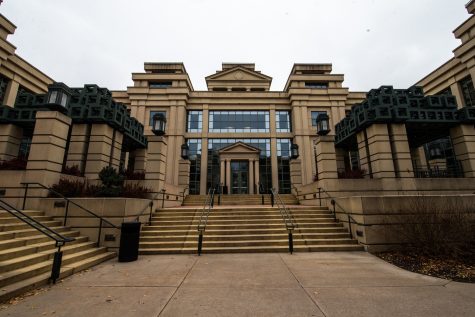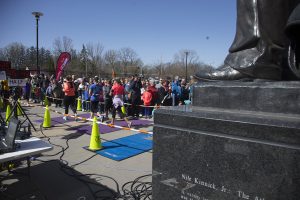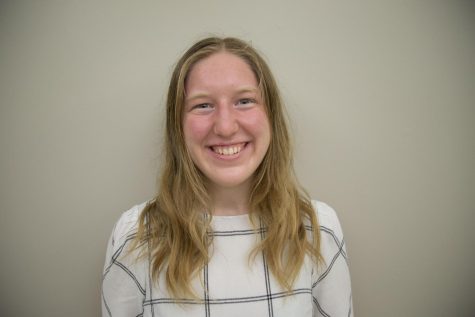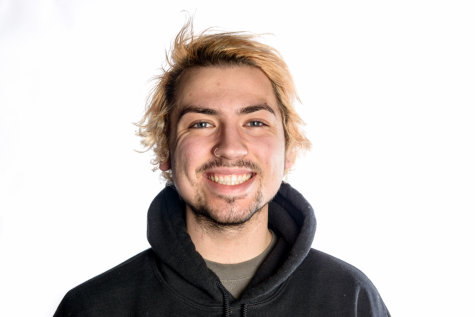Popular-culture clubs on UI campus grow in number
As student interests evolve, so are the organizations available to them, and many students are engaging in activities nonacademic and nonathletic to build community around their favorite television shows or books.
University of Iowa Club Quidditch players chase the golden snitch during an intersquad scrimmage at the Hawkeye Tennis and Recreation Complex on Wednesday, November 14, 2018.
April 11, 2019
Of the nearly 586 student organizations available at the University of Iowa, several stem from common themes in popular culture. While the athletes and the mathletes find something to keep them occupied, so do the students with an affinity for a particular TV show or book.
UI groups such as the Game of Thrones Club or the Quidditch Club continue to multiply on campus as students seek organizations that cater to their personal interests.
“I think a lot of clubs you have to be smart or have a certain skill, and it’s very competitive,” Game of Thrones Club President Shaan Trivedi said. “We wanted to create a club where people could come relax and just enjoy common interests and have a good time.”
Trivedi said he was surprised by the approximate 60 people who have joined his club since its establishment, which began as a gathering of around 10 of his friends at one of their houses. Now, they rent space in the IMU and meet every Sunday for viewing parties.
“It was exciting, because I got a lot of emails from people who were excited to join the club,” Trivedi said. “That made me get more involved and put more of my time into it to make sure it all runs well.”
With the members of the club he started as a gamble, Trivedi has weekly, open-table discussions about conspiracies and predictions in regard to the popular show. People who correctly predict what might happen next, such as which character kills whom, can receive prizes.
Andrew Kutcher, the Center for Student and Involvement student-life program coordinator, is charged with making sure student organizations have appropriate guidance from the university to take off successfully.
“Our students have so many varying interests,” Kutcher said. “And we want them to be able to have opportunities to not only grow professionally based around those interests but also find people that have similar interests as them so they can have that community.”
Community is the primary benefit of student organizations for students on campus, he said. People who students can interact with and become friends with is a success story he said he always looks forward to hearing.
“It’s really special for us,” Kutcher said. “Because we get to see the stories about what student organizations have meant to our students.”
RELATED: New student organization wants to bring fair trade to the UI
Kutcher said he believes there has been a growth spurt of groups on campus that are inspired by popular culture, a trend he said speaks to the diversity of UI students and their interests.
However, not all of the student organizations in question are nonacademic or athletic. In fact, one of the most established of these groups is the Quidditch team, one of the only gender-inclusive and full contact sports clubs on campus.
“Even though we try to keep the Harry Potter thing out of it, it definitely provides a different atmosphere,” UI Quidditch cofounder and President Lily Neumann said. “While we are very serious about the sport, we also know how to have fun.”
Neumann stressed that many people think of the Quidditch team as a Harry Potter fan club and insisted that the athleticism of the sport itself takes priority. In fact, she thinks her admiration for the books has been overridden by her love for the sport.
Two years after its creation, and with 35 members, Quidditch has established a solid community, Neumann said. The team travels to different tournaments throughout the Midwest and even south to Texas, and it also holds twice-weekly training.
“We thought it was something that campus needed, just like a safe space for people but also a fun sport,” Neumann said. “We have get-togethers and team bonding, and people just hang out naturally.”



